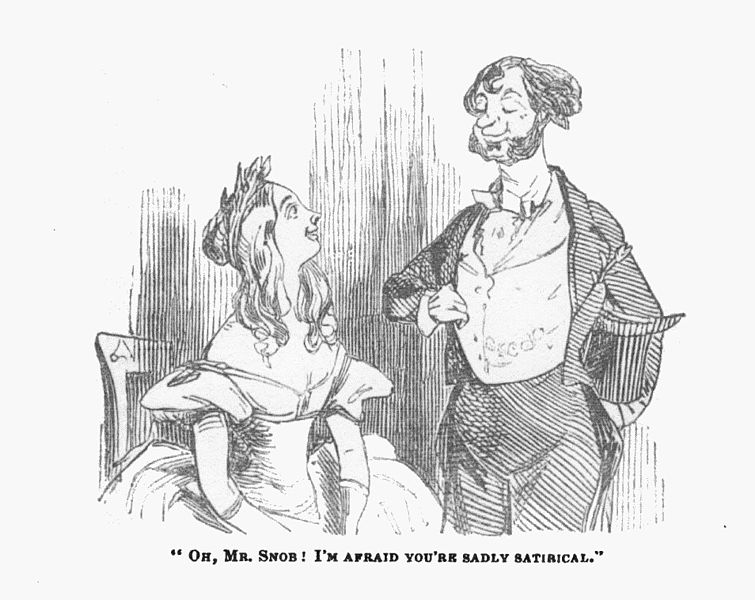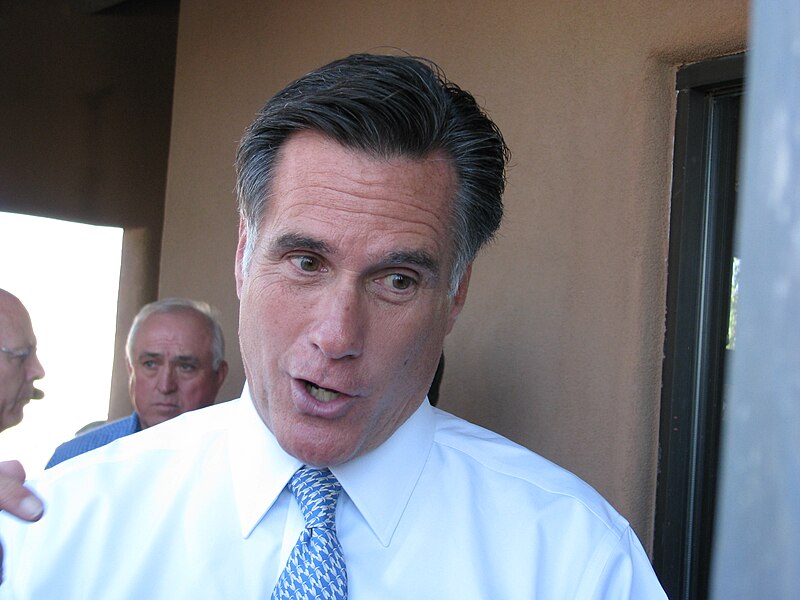(image from Balloon Juice, which is a terrific blog you should read)
The core premise of the book is this; gross inequality of outcome leads to elite behaviors which are ultimately destructive to the society.
(this and unlabeled images from Wikimedia Commons)
Mr. Hayes begins with the thesis that the last 12 years have been a "fail decade". He cites Bush v. Gore, 9/11, the Enron Scandal, the Iraq War, Hurricane Katrina, MLB's steroids scandal, the enabling of serial pedophiles by the Catholic Church, the Financial crisis and Jerry Sandusky's institutionally protected reign of child molestation as some of the evidence of this failure.
That's a pretty compelling string of fail. He attributes these disasters and others to incompetence and corruption in our elite institutions, and he blames the sharp increase in inequality we've seen in this country for elite failure.
The case he makes is hard to rebut. Mr. Hayes begins his discussion with "The Iron Law of Oligarchy" which is the idea that any group, regardless of its purpose or values, will inevitably split into elite members and mass members. Elite members, by virtue of their innate characteristics (drive, ambition, talent) will come to exercise greater influence on the group's decisions and actions than the mass membership. Subsequently, they become more concerned with the group's internal hierarchy, and their place within it, than with the group's putative goals.
Americans are comfortable with this type of inequality, provided that it is the outcome of "merit". The key element of American political mythology is that all of the participants enjoy "equality of opportunity". Subsequent inequality of outcome and circumstance is then (theoretically) attributable to the actions of the individual. If the playing field is level, the outcome of the game is legitimate. Equality of outcome is not desirable because it limits the best and most talented individuals. This is not only detrimental to the individual, but also to the larger society, which is deprived of their talents.
Mr. Hayes then proposes a corollary to the Iron Law of Oligarchy: the "Iron Law of Meritocracy". This posits that any group of elites will act to secure and extend their privileged position in society. They are able to do so because of the inequality of outcome their exceptional talents has created. Meritocracy is thus inherently unstable; it's beneficiaries will act to undermine it on behalf of themselves, their friends and their families.
The results of this "self-dealing" are seen in the string of catastrophes listed above. Inequality of outcome has reached a level in this country that our elites have successfully eliminated equality of opportunity. Consequently our elites are no longer competent. They are no longer incented to benefit the mass membership through their actions. Elite interests have become divorced from the interests of the larger society.
"three decades of accelerating inequality have produced deformed social order and a set of elites who cannot help but be dysfunctional and corrupt."
The author offers a typology of power wielded by elites including Money, Platform (access to mass audience) and Network (access to other members of the elite). He then makes the important point that while these "types" of power are conceptually different, they tend to reinforce each other and go together.
Mr. Hayes goes on to chronicle the reasons why elites become dysfunctional. Beneficiaries of the system of elite selection and recruitment are of course convinced of the legitimacy of the system that put them at its apex. They work to preserve it.
At the same time, they work to subvert the "principle of mobility" that lies at the heart of meritocracy, by providing their friends and family with perks and advantages not enjoyed by the mass populace. Mr. Hayes documents this tendency with some depressing statistics regarding social mobility and income stagnation in the United States since 1980.
Elites, convinced that they've earned their perks, enjoy those perks to their fullest. Among those perks is increasing isolation from the mass society they rule. They're less likely to ride the bus, less likely to encounter the poor and more able to avoid the daily headaches that plague most of us. Mr. Hayes refers to this as "social distance". This deprives them of critical feedback regarding the consequences of decisions they make which affect the broader society.
One particularly poignant example cited by Mr. Hayes is the ruthlessly punitive nature of our criminal justice system. The consequences of that particular holocaust are avoided entirely by elites, but have devastated segments of the larger society.
"...the closer those in charge are to the consequences of their actions, the more responsive they'll be and the better decisions they will make."
Protected from the worst consequences of our justice system, elites are not deterred from self-serving actions which, while illegal, are unlikely to result in incarceration, or even meaningful fines. The internal values of elite subculture have become so hyper-competitive that a myopic focus on profitability, or electoral success, or winning baseball games excludes every other consideration. And this pathology is magnified by the enormous rewards our acceptance of inequality offers to the successful. Finally, once "cheating" has taken root in the system, not cheating becomes impossible. Mr. Hayes demonstrates this with a particularly cool and intellectually playful application of Gresham's Law.
The results of this corruption of our elites have been listed above. Having watched institution after institution betray its public trust, the mass membership has grown almost entirely skeptical about the motives and public pronouncements of the elites. This delegitimation of our decision makers has created "a crisis of authority" in which there is no consensus on what our problems are or how they can be solved. We cannot agree on what the facts of our circumstances are, because the determination of "fact" is a function of elites whom we no longer trust.
The book ends with some suggestions for reforming the system. Such reform is straight-forward, at least in its basic form; reduce inequality. This will have the effect of increasing the pool from which elites are recruited, reducing the incentives for elites to cheat and improving their awareness of the consequences of their decisions.
The authoritative case Mr. Hayes makes is enhanced by his prose; he writes with both elegance and directness. The book is extremely accessible. I can even call it a "page turner" with perfect accuracy, adding only the caveat that I get more excited by this type of material than is sane and normal.
(No, that's not actually me.)
While Chris Hayes is something of a "darling of the Left" and makes no attempt to hide his ideological predispositions, the book itself is not ideological. Readers with a conservative viewpoint will find themselves in perfect agreement with most of what he has to say.
This is mandatory reading for those of you serious about citizenship, and concerned with the direction of our country.









No comments:
Post a Comment